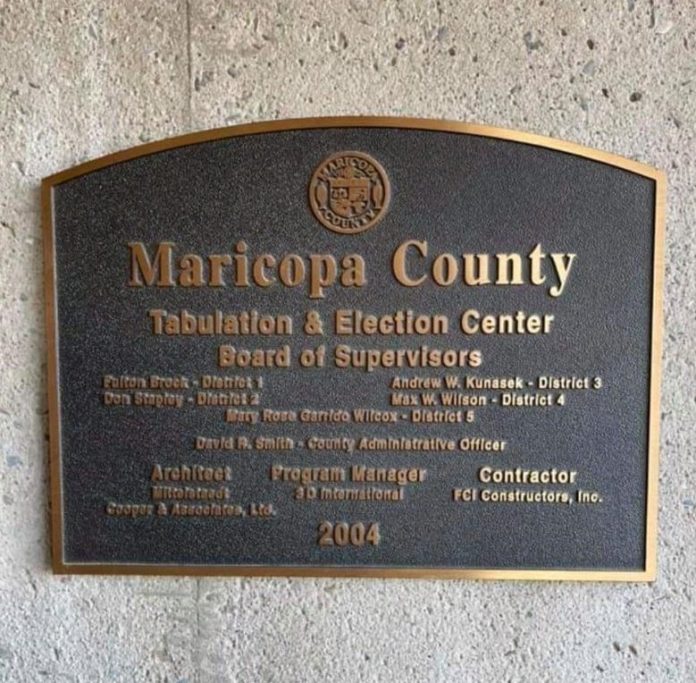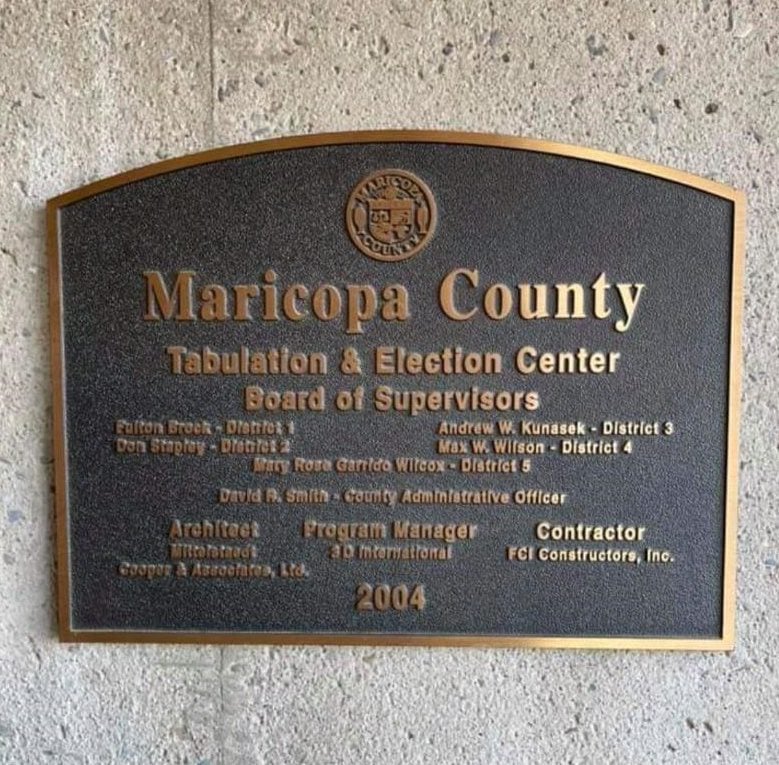The final report from Maricopa County covering the routers and Splunk logs related to the 2020 Election was released on Wednesday. The results were puzzling as the auditors make broad statements that would be impossible to confirm.
In September of 2021, the Senate agreed with Maricopa County officials on a Special Master who wbraoould oversee the audit of routers and Splunk logs related to the 2020 Election in the county. This Special Master, John Shadegg, then obtained experts to review these items for him.
We had our concerns about Shadedd because he comes from the political era where John McCain was king in Arizona. As we all know, John McCain hated President Trump and we have noticed that those who hate President Trump sometimes carry that bias into what they do.
Yesterday the report from their work was released.
The entire report is below. The report provides some information on the auditors and the work performed and then says everything is fine. On page 18 of the report, the auditors provide their conclusion. In this conclusion, the auditors claim the following based on a high level of confidence with respect to the information that they reviewed.
1. There are two separate computer networks that comprise the Maricopa County election network. One exclusively stores and maintains registration records and information only (OET). The other tabulates election results only. This is the BTC. It is physically and electronically separated from the outside. The BTC is monitored 24 hours a day, 7 days a week, and is accessible only by authorized personnel with card key access. There is no electronic connection between the BTC and the MCTEC, either wired or through a wireless protocol.
2. There are no routers in the BTC.
3. No Splunk logs were available for review of the BTC network within the MCTEC because none were generated as described above.
4. The Voter Registration database (from OET) is never transmitted electronically to the BTC in accordance with the privacy provisions of the Arizona Constitution.
5. Vote tallies, as they are completed, are loaded on a newly opened USB (thumb drive, Flash drive), under the observation of politically appointed observers, and are then physically taken out of the BTC and loaded on a separate computer for distribution to the press and public.
6. The official canvass is also loaded on a newly opened USB (thumb drive, or Flash drive) and is hand-carried to the Secretary of State’s office along with chain of custody control documentation.
Here’s our response:
For 2. When the auditors say there are no routers in the BTC, it is very suspicious. There should be some sort of routers or how else would the BTC addresses be provided?
For 4. The claim is that the Voter Registration is NEVER transmitted electronically. Never is a very big word – how can this be confirmed?
For 5. Overall how can the auditors make this statement? Did they observe all the election files and video to confirm this is the case? This too seems very difficult to state a year after the election took place.
For 6. Also, here, how can this be stated? Was this observed completely during the election? There are some very big statements here as well.
Below is the report.
AZ Final Report on Routers and Splunk Logs by Jim Hoft on Scribd
After more than a year of pushing back and complaining about providing information on the Election Network to auditors, Maricopa County finally concedes after hearing who would be involved in the examination. Now everything is fine. None of this adds up.



